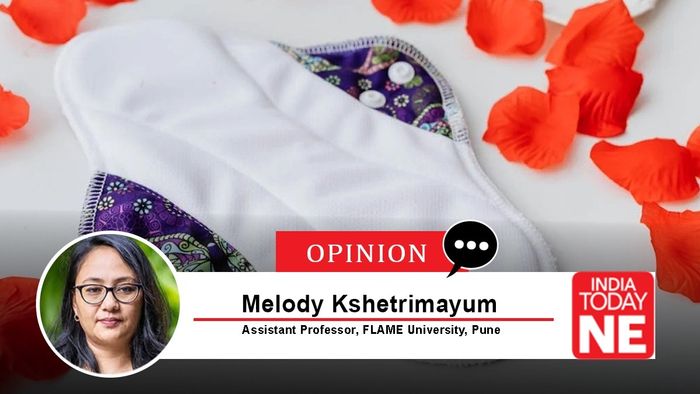Menstrual Hygiene Day 2025: Together for a #PeriodFriendlyWorld in India
Menstrual Hygiene Day 2025 highlights the need for awareness and stigma removal around menstruation in India. Organisations nationwide are promoting education and access to hygiene products to empower women and girls.

- May 28, 2025,
- Updated May 28, 2025, 11:11 AM IST
Every year, Menstrual Hygiene Day has been observed on May 28 since 2013 across the world. The date 28/5 is symbolic of the length of a menstrual cycle and the duration of menstruation in one cycle. This year’s theme #PeriodFriendlyWorld focuses on making menstruation experiences pleasant, free from stigma and shame, and creating a world that accepts menstruation as a normal body function. Historically, menstruation is stigmatised and associated with emotions of shame and embarrassment in various cultures. Most belief systems construct menstrual blood as something to be protected and hidden. Additionally, policies across countries neglect menstrual stigma and cultural beliefs and focus on tangible and material outcomes, such as menstrual products and facilities.
Is India ready for the #PeriodFriendlyWorld movement?
In India, menstrual hygiene management (MHM) is recent, as there was silence on the topic and limited accessibility to menstrual products till the 1990s. Launch of National Health Mission, engaging ASHAs, availability of low-cost sanitary pads and NGOs implementing awareness programmes have contributed to the overall growth of menstrual hygiene. The National Family Health Survey (NFHS)-5 conducted from 2019 to 2021 in two phases indicates that 89.4 % urban and 72.3 % rural women in the age group 15- 24 years use hygienic methods of protection during their menstruation.
The hygienic methods include locally prepared napkins, sanitary napkins, tampons, and menstrual cups. The NFHS-4 conducted from 2015 to 2016 showed that 77.5% urban and 48.2 % rural women used hygienic methods. In five years, there has been an 11.9 % and 24.1% improvement in urban and rural areas, respectively. It is important to note that the use of hygienic methods is not the only indicator to measure MHM. MHM ensures safe and dignified menstruation experiences. This implies adequate access to WASH, hygienic menstrual products, menstrual product disposal system and stigma-free menstruation. Studies have reported that India continues to struggle in achieving efficient MHM.
According to Prof. Kathleen O’Reilly, sanitation is a gendered and geographical issue in India due to gendered differences, restrictive social norms and mobility, unsafe toilet locations, and privacy concerns.
A Study on Society and Menstrual Hygiene Practices
The author’s study on society, euphemisms and menstrual practices in 2025 observed that cultural beliefs, gender norms, euphemisms of menstruation, and WASH facilities impact women’s menstruation hygiene, practices and experiences in varied ways. Stringent beliefs and euphemism significantly impact girls’ and women’s menstrual behaviour and actions. Girls and women still do not have adequate access to toilets and water at home and in schools. They lack privacy to change and wash their menstrual products or clothes. They lack proper disposal systems and throw their menstrual products near river banks and trash piles.
Menstrual talk remains secretive among girls and women. To avoid talking about menstruation openly, women use euphemisms which further prevent people from knowing about menstruation. Usage of words such as ‘impure’ and ‘dirty’ and euphemisms connotes negative construction of menstruation and women’s bodies that puts women in an inferior position and creates a stigma that menstruation is undesirable. Rural communities have distinct cultural beliefs that impact menstrual practices stringently. At the same time, some states celebrate menstruation. Ritushuddhi, manjal niratu vizha, and thirandukalyanam are rituals practised to mark menarche and signify a girl’s transition into adulthood and readiness for marriage. While these rituals accept and open up conversations on menstruation, they also construct patriarchal expectations.
Menstruation is deeply personal but political, and individual behaviour and practices are influenced by broader socioeconomic, cultural and political environments. It intersects with gender, rurality, culture, and access to WASH strongly in rural settings. For India to be friendly with menstruation, a contextualised, sustainable framework is needed.
A sustainable framework for achieving MHM
Menstrual health is the outcome of different interconnected components identified as context, perception and preparedness, menstrual health practices, and menstrual product disposal. To achieve desirable menstrual health management or menstrual justice, four points of intervention are recommended to position to their respective components.
- Locally-rooted sensitisation of teachers, parents, Anganwadi workers, and health workers on menstrual health literacy, their role as support system, especially for adolescent girls, and in mentally preparing them. Destigmatising menstruation with local people should be the focus of this intervention.
- Menstrual health literacy for girls and boys; scaling up WASH facilities; culturally appropriate awareness by NGOs, Anganwadi Centres, Schools, Govt and Media.
- Developing proper waste collection system in the community and schools for collection, segregation and management of used menstrual products as part of the existing Swachh Bharat Mission (SBM-Gramin).
- Academicians, NGOs and Media should play an important role in evaluating policies, raising awareness, identifying gaps, intersecting categories, and conducting research in vulnerable areas such as disaster-prone areas, conflict-ridden areas, and water-scarce areas.
The framework will strengthen the fight for achieving MHM in different cultural contexts. India is ready for the #PeriodFriendlyWorld movement.